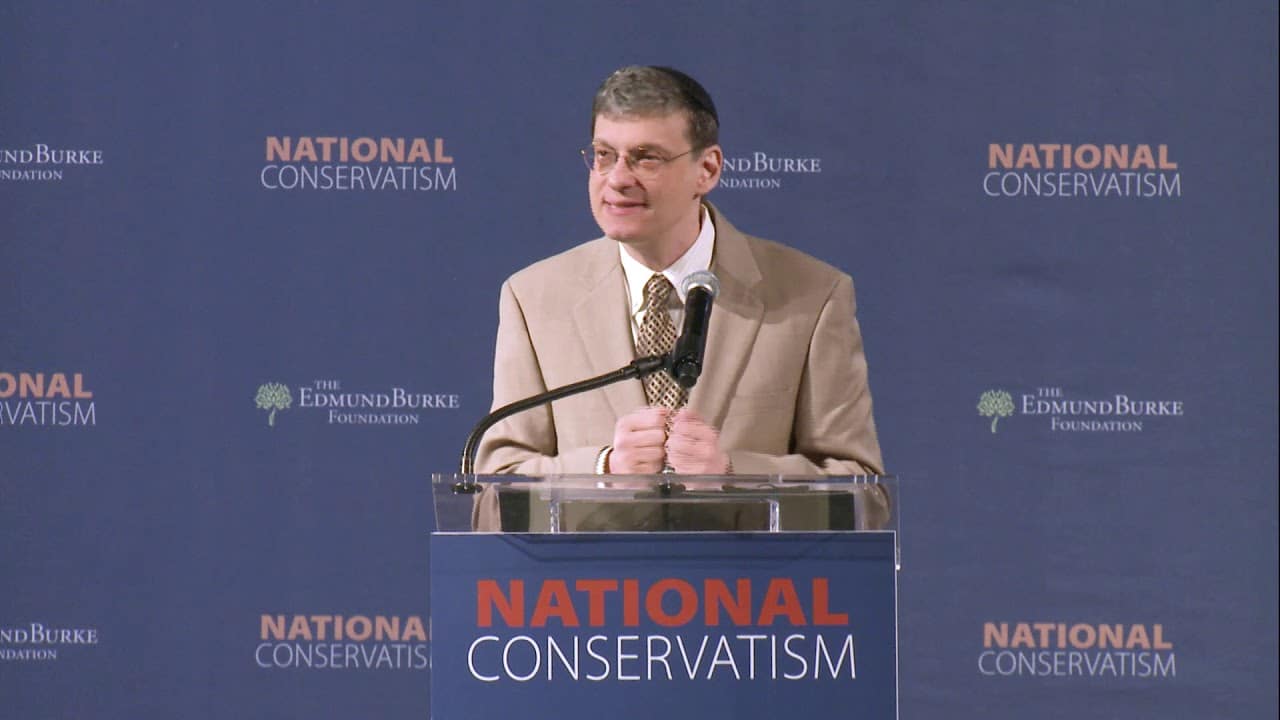In the thirty years since the end of the Cold War, conservatives of various stripes have, with decidedly mixed results, sought to shape the parameters of the national debate over the conduct of U.S. foreign policy. These include such foreign policy blueprints as the Wolfowitz Doctrine (1992); the Project for the New American Century’s “Rebuilding America’s Defenses” (2000); Condoleezza Rice’s “Campaign 2000: Promoting the National Interest” (2000); and Mitt Romney’s The Mantle of Leadership (2012).
The latest attempt to forge a conservative foreign policy paradigm comes by way of the former Trump national security advisor Robert O’Brien who, in a much-discussed essay in Foreign Affairs last month, laid out his vision for what US foreign policy might look like under a second Trump presidency. In his piece, O’Brien calls for the containment of China in order to deter it from threatening Taiwan. As for Middle East policy, O’Brien’s devotion to Israel rivals that of the most hawkish neocons. He believes a second Trump administration should launch a campaign of “maximum pressure” on Iran, which, he writes, is “the true source of tumult in the Middle East.”
Such a campaign would
mean deploying more maritime and aviation assets to the Middle East, making it clear not only to Tehran but also to American allies that the U.S. military’s focus in the region was on deterring Iran.
The O’Brien Doctrine (if indeed that’s what it is), particularly with regard to China and the Middle East, fits neatly within the foreign policy paradigm of the National Conservatives, or NatCons, who recently held a three day conference (confusingly, also “NatCon”) in downtown Washington, D.C.
As the Quincy Institute for Responsible Statecraft’s Senior Adviser Kelley Vlahos pointed out in a superb report on NatCon’s foreign policy prerogatives,
On the one hand the organizers and proponents rail against a globalism dominated by supranational neo-liberal institutions, and progressive litmus tests and ideas, but on the other they want borderless solidarity with other like minded nationalists across the globe…. It also means talking about Israel from a predominantly Israeli nationalist perspective.
Vlahos went on to note that the NatCon conference is the creation of the Edmund Burke Foundation, whose founder is the Israeli nationalist Yoram Hazony, a former speechwriter to Israeli premier Benjamin Netanyahu. An admirer of the violent Jewish supremacist Meir Kahane, Hazony and his family have made their home in the Occupied Palestinian Territories.
In a 2019 speech unearthed by historian Suzanne Schneider, Hazony claimed that
In every country in the world where there is an uprising against the destruction, the endless revolution that liberal Enlightenment is causing…the nationalist leadership turns to Israel, turns to the Jews, turns to the Torah, and says ‘That’s our model for what we want to see in our country.’
Yet is ethno-nationalism in the form we now see on perfervid display in Israel under Netanyahu—whose actions have been slavishly endorsed by leading figures of the NatCon movement—a realistic (we’ll leave aside the question of whether it is good or just) model for the United States?
In the distant past, perhaps. But that ship, for better or worse, has sailed. A multiethnic, multi-confessional society that spans an entire continent requires solutions other than those on offer by nationalists like Hazony.
Writing in 2005, the historian John Lukacs made a useful distinction between nationalism and patriotism—and it is one to which NatCons might avail themselves. Lukacs defined patriotism as “the love of a particular land, with its particular traditions.”
“The love for one’s people is natural,” he wrote, “but it is also categorical; it is less charitable and less deeply human than the love for one’s country, a love that flows from traditions, at least akin to a love of one’s family.”
For ethno-nationalists like Hazony and his American disciples, the July 2018 adoption by the Knesset of the Israel Nation-State Law was a watershed moment. The law, among other things, says that “the right to exercise national self-determination” in Israel is “unique to the Jewish people.” Such a declaration may be well within the boundaries of the Zionist political tradition, but few things could be more antithetical to the American political tradition.
Still more, a number of high profile NatCons have embarked on a campaign to toss out the Establishment Clause of the U.S. Constitution. At the aforementioned NatCon conference, the editor of First Things, R.R. Reno, urged the Roberts Court to “tear down that wall” between church and state.
So much for Luke 20:25; let’s gut the First Amendment to hasten the Second Coming.
Fair Use Excerpt. Read the whole article here.

